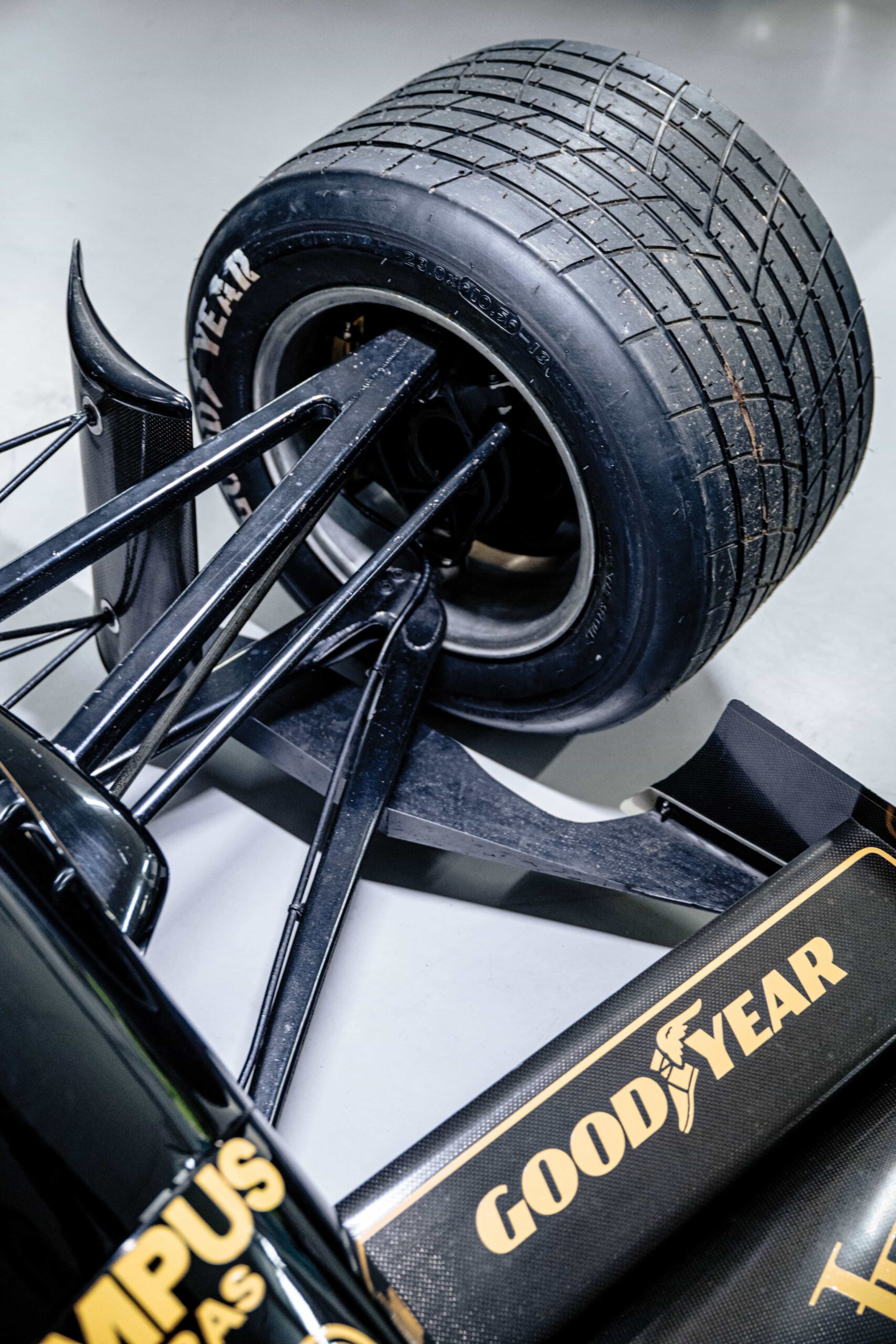Lotus 97T: Ayrton Senna’s Estoril annihilator
It’s 40 years since Senna’s first F1 win at a rain-soaked Portuguese GP. Although the driver’s talent was never in question, he needed the tools to take him to the top. This Lotus was it
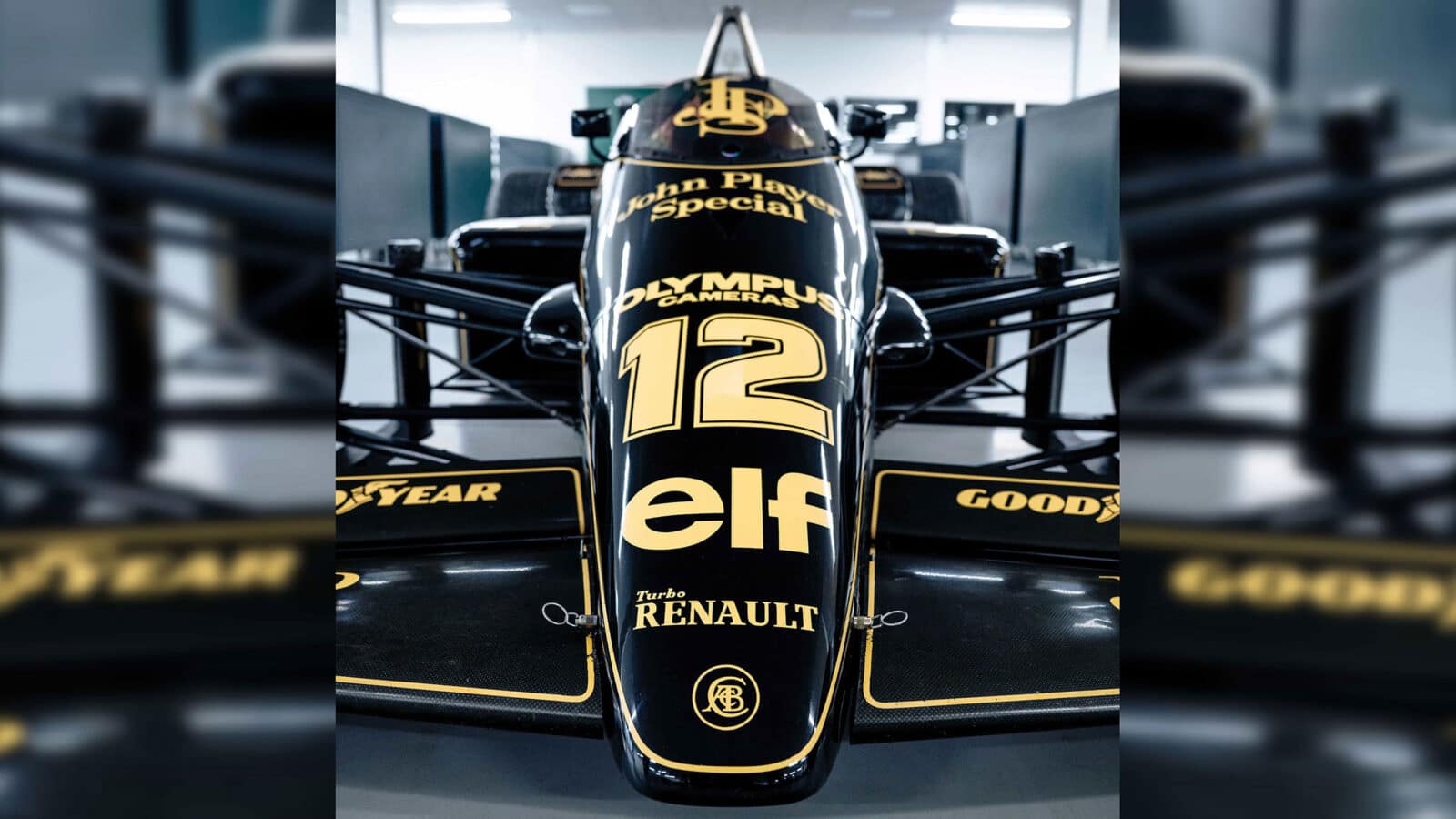
Jayson Fong
A proper gobsmack moment. That’s the best way to describe the sensation of seeing Ayrton Senna’s 1985 Portuguese Grand Prix-winning Lotus 97T being wheeled through the car park towards the workshop entrance at Classic Team Lotus. Good heavens… this is the actual car that gave Senna his first ever Formula 1 victory 40 years ago.
We’re at Hethel in Norfolk on a fact-finding mission, hunting for Ayrton artefacts from Estoril ’85. The first instinct is to touch the 97T, to allow its history to flow through your fingertips. As Classic Team Lotus has a ‘mucking-in’ vibe it seems only natural to grab a wishbone and help push. It lacks the turning circle of your average road-goer so it’s back, forth, back, forth until the car lines up and is able to be squeezed indoors.
As F1 racers go, this is royalty – and it exudes an appropriate air of majesty. Four 97Ts were built. Chassis 2 here was allocated to Senna for the first six races of ’85 and although Portugal and its sodden conditions constituted its sole win, there were four pole positions. A final outing for 2 came in Austria with Elio De Angelis guiding the car to fifth.
With Senna’s hero status rising stratospherically as the victories arrived so interest in this ‘black beauty’ grew. It was restored to full working order in 2003 and has been a frequent visitor at Goodwood since – indeed as part of the Senna 40th celebrations it will be a star attraction at the Members’ Meeting on April 12-13 and play its part in an emotional return to Portugal for a demonstration run on April 21.
Wooden drawers are slid open to reveal decades-old paperwork, while glass cabinets are unlocked allowing trophies and historically important arcana to be removed and analysed. Here’s what we found. LG
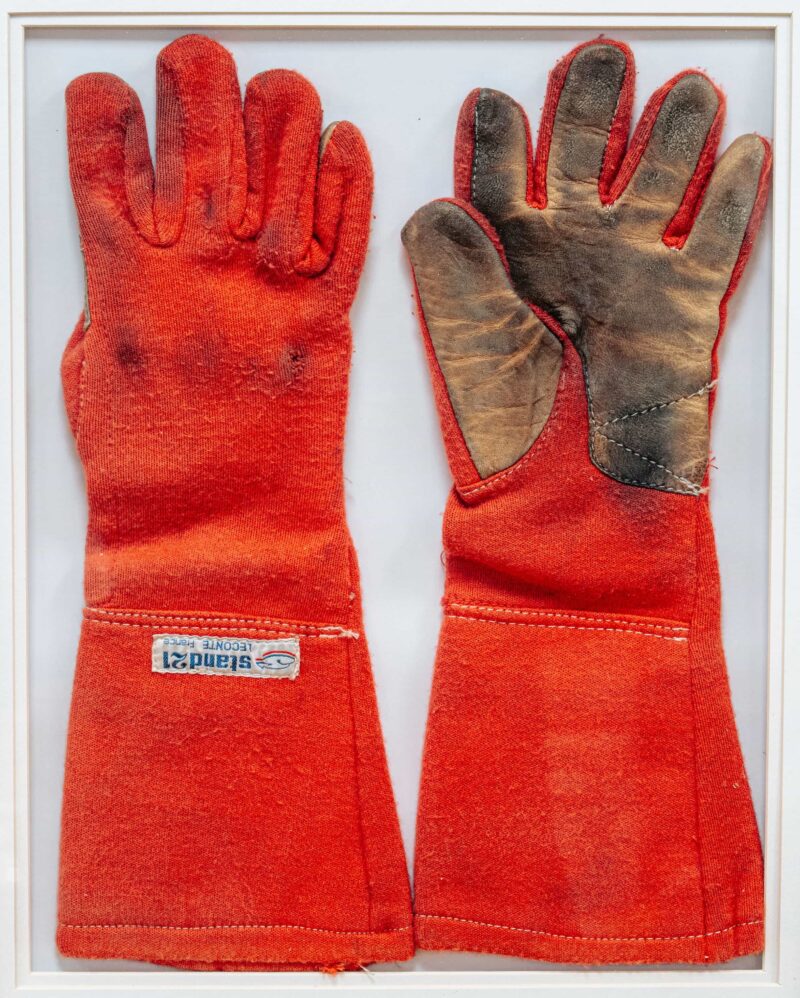
Study photographs from the 1985 Portuguese Grand Prix and you’ll see Ayrton Senna wearing these red Stand 21 Leconte gloves. After the race, this pair were thrown to the ground by Senna in parc fermé and quickly picked up by his mechanic Chris Dinnage. They are unused since Estoril
Jayson Fong
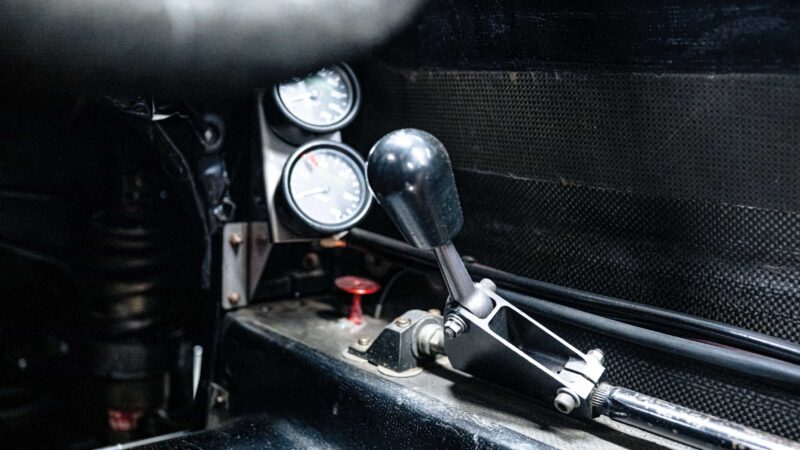
the car has a five-speed manual gearbox – Senna’s hand would have spent much time here during the GPs of Brazil, Portugal, San Marino, Monaco, Canada and Detroit.
Jayson Fong
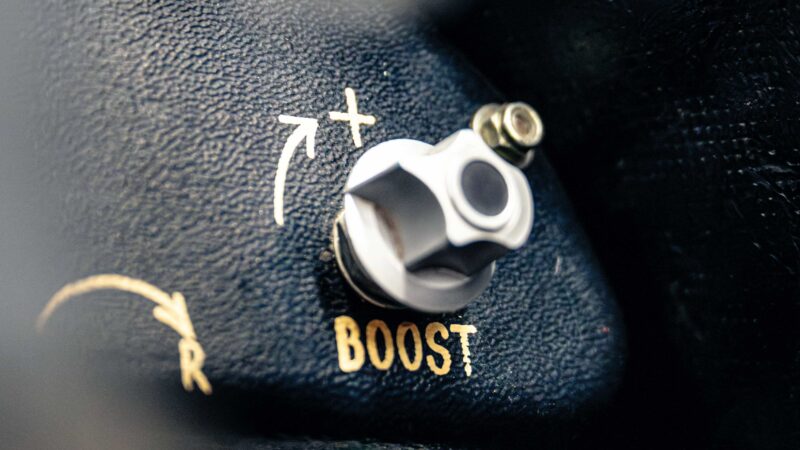
Clockwise for increased boost – in race trim it would have been set at 3.2-3.4 but in qualifying it was full-on 5.0-5.5
Jayson Fong
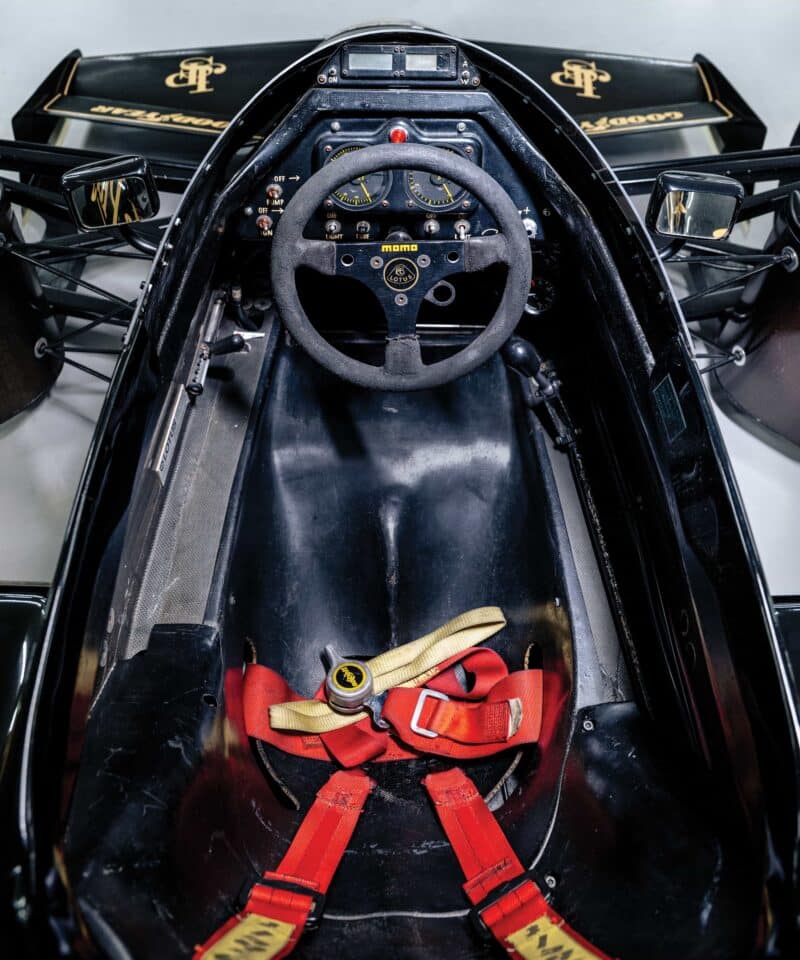
The car has been kept in 1985 spec with original belts and features. There’s an ‘Ayrton pedal extension’ on the right- hand side of the throttle to keep Senna’s foot firmly on the metal
Jayson Fong
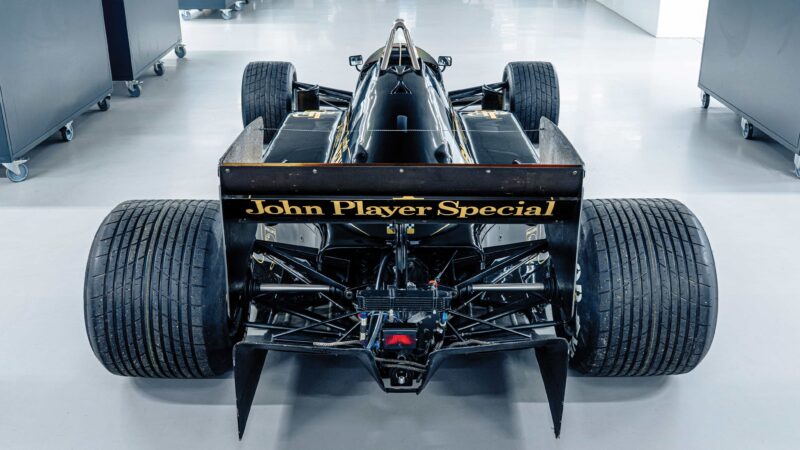
On close observation it can be seen that the wording and narrow gold lines on this 97T are hand-painted – the brushstrokes are just noticeable. This is original. Hand painting is still done at Classic Team Lotus by local sign writer Paul Banham, who has worked on other CTL cars
Jayson Fong
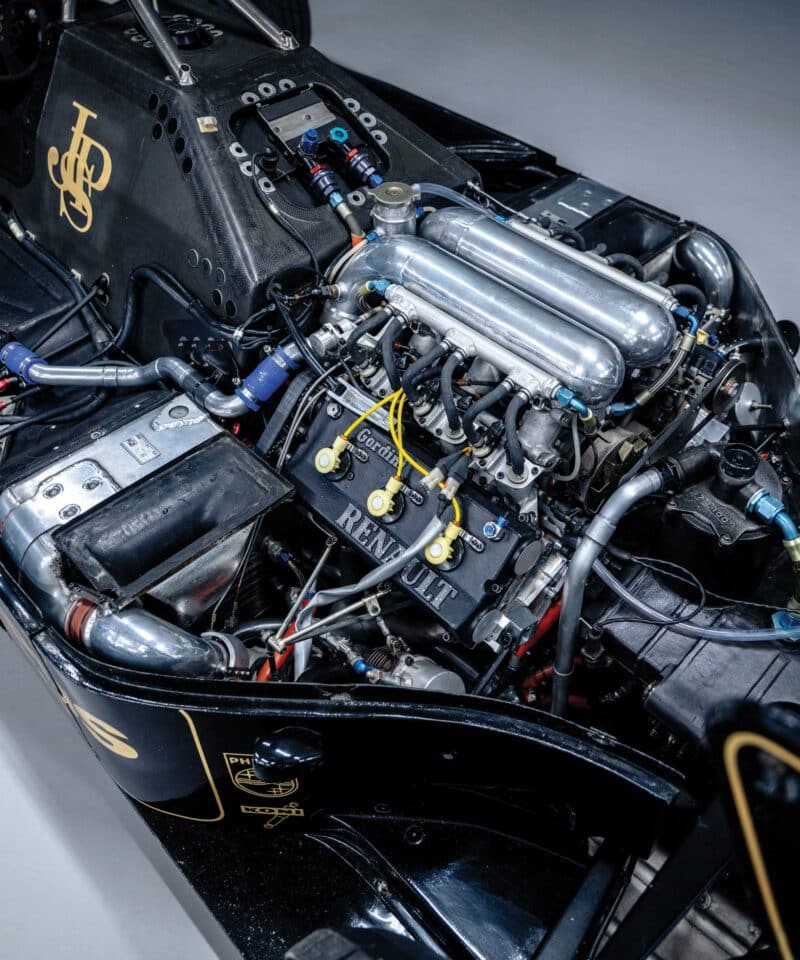
Renault EF4 1.5 V6 turbo – it’s thought that Senna used his qualifying spec engine in the Portugal race
Jayson Fong
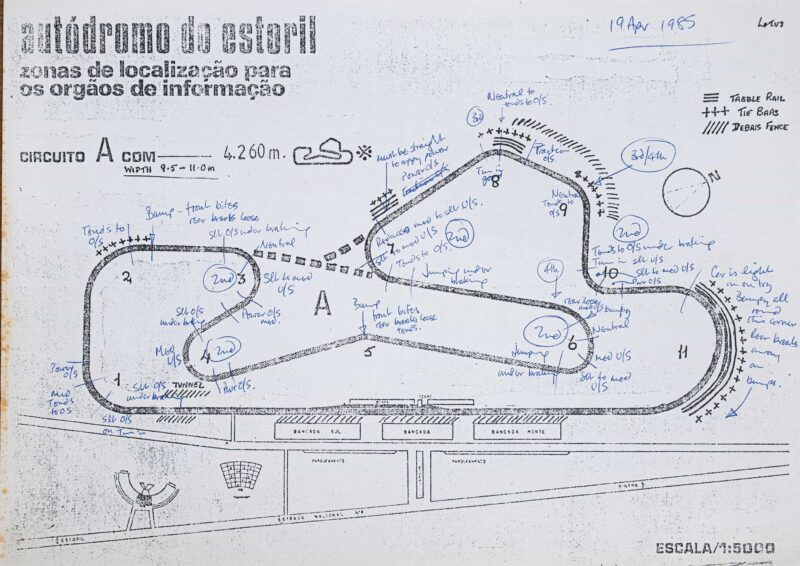
“Must be straight to apply power”; “jumping under braking”; “car is light try bumping round this corner” – Estoril notes dated April 19 1985.
Jayson Fong
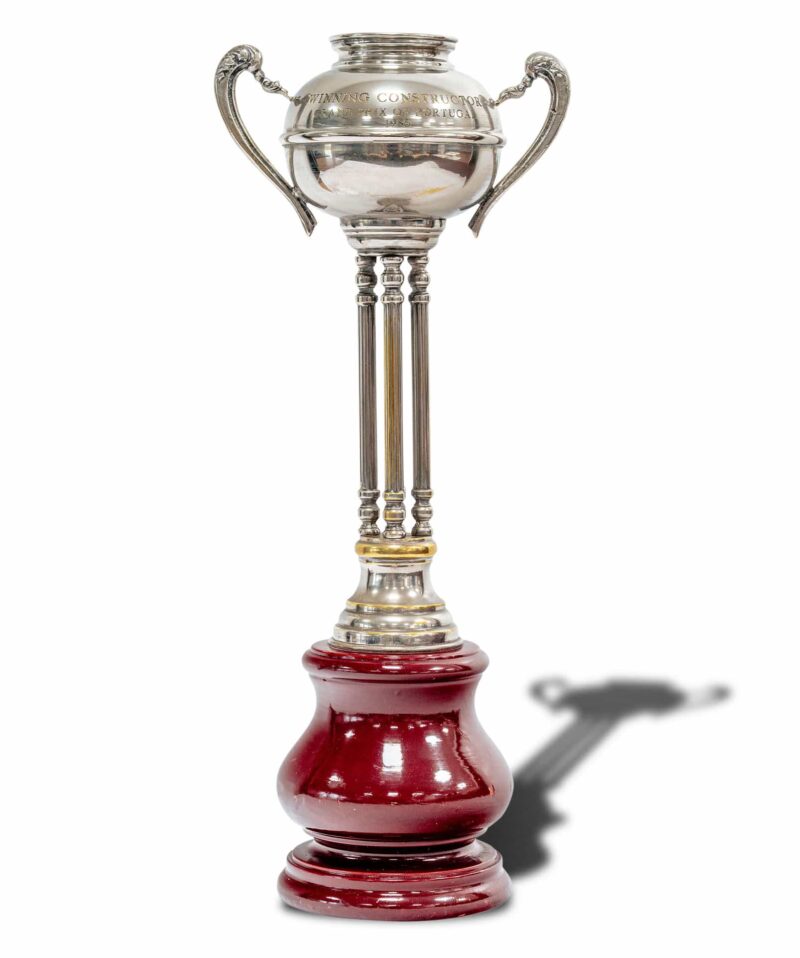
Team Lotus’s constructors’ trophy from the 1985 Portuguese Grand Prix
Jayson Fong
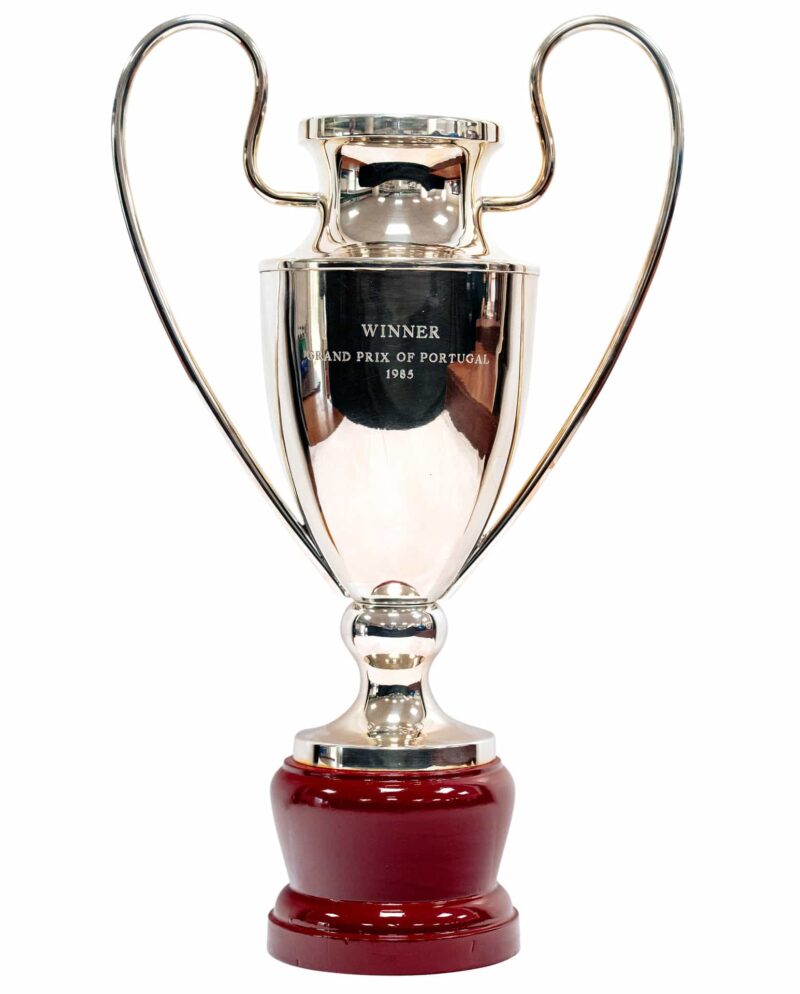
Senna’s drivers’ trophy from the same race. Had the 97T been more reliable through 1985, Senna could have been in line to win the F1 world title but seven DNFs meant his final standing was fourth
Jayson Fong
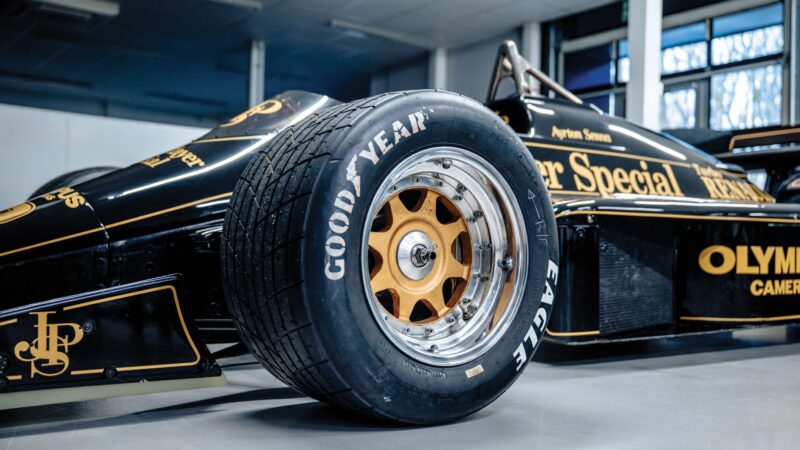
The 97T was the creation of French designer Gérard Ducarouge, who had made his name at Matra in the 1960s and early ’70s – his MS80 took Jackie Stewart to the 1969 F1 world title. His ’85 Lotus featured a crash-protective nosebox as per the latest regulations
Jayson Fong
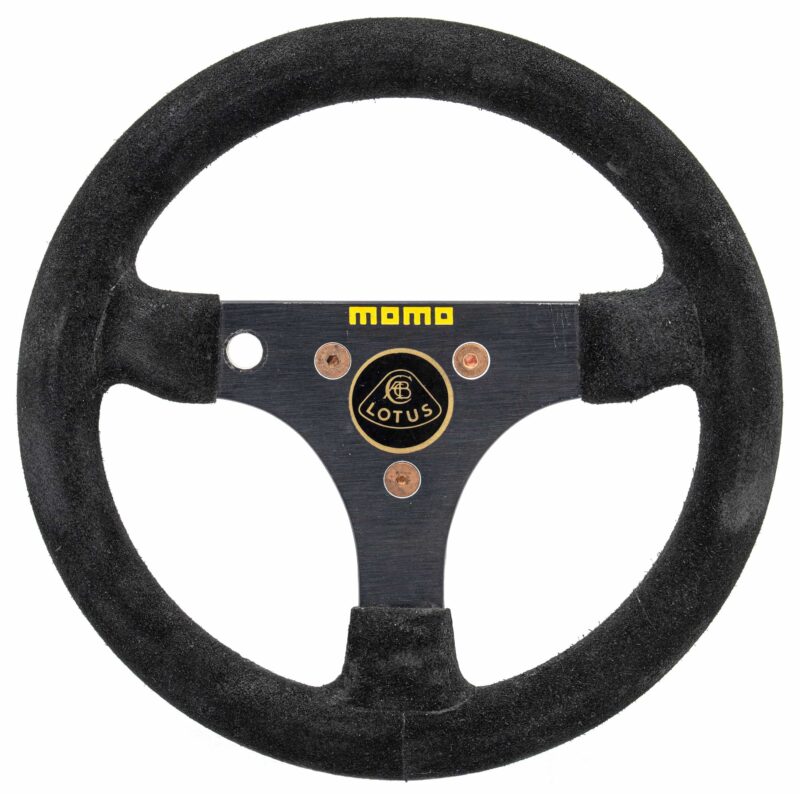
This is the actual Momo steering wheel from Senna’s Lotus at Estoril in 1985. Senna proved himself a quicker driver than team-mate Elio De Angelis when he arrived at Lotus and although both officially had equal standing, Senna established himself as number one
Jayson Fong
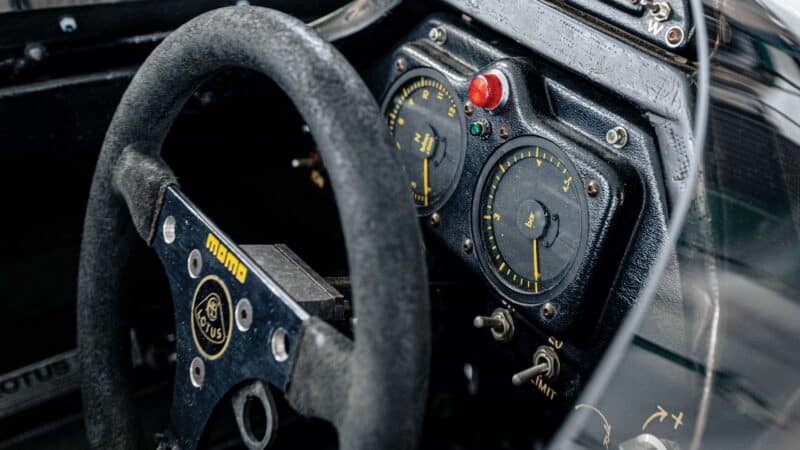
The 1985 Portuguese Grand Prix is seen as Senna’s finest drive – the 97T had no traction control, unlike the McLaren that was used for his other wonder-drive at Donington in ’93.
Jayson Fong
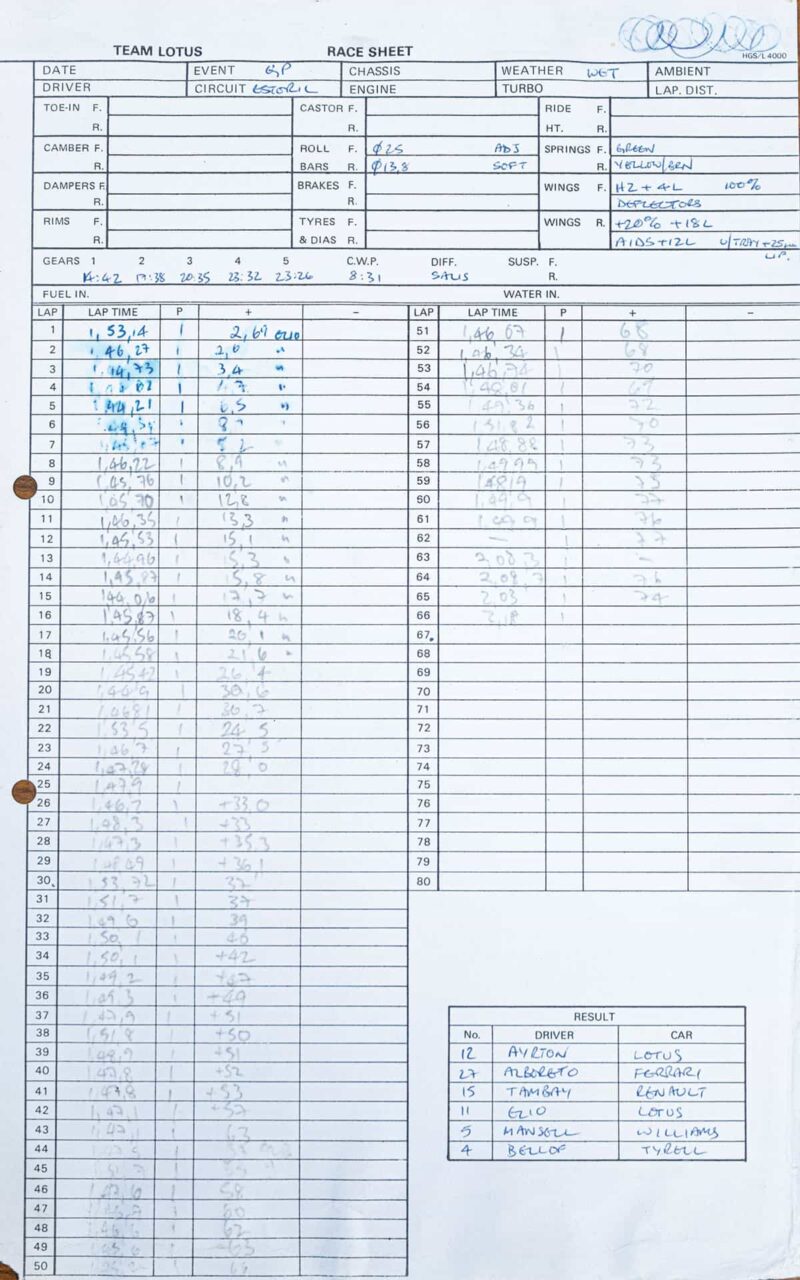
Estoril race sheet for Senna – note how pen was dispensed with due to the wet in favour of pencil
Jayson Fong
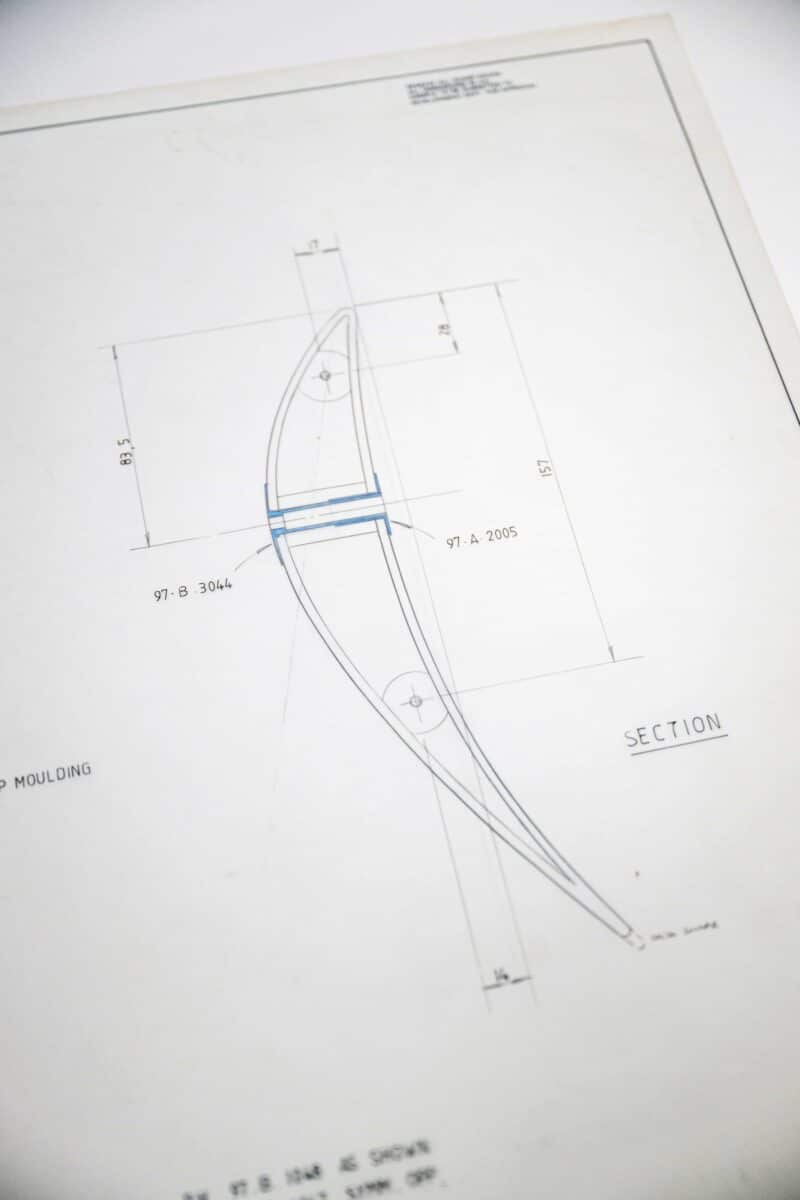
A game-changer in 1985 were curved vertical deflector vanes positioned by the front wheels and the tub sides. Team Lotus engineers were not entirely sure what they did at first or why they improved performance… but they seemed to clear up drag-inducing vortices
Jayson Fong
Lotus 97T
Engine Renault EF4/EF4B 1.5-litre V6 turbocharged
Chassis Carbon-fibre composite with aluminium honeycomb monocoque
Power 900bhp
Transmission Hewland FGB five-speed manual
Suspension (front & rear) Double wishbones, coil springs over dampers
Weight 539kg
